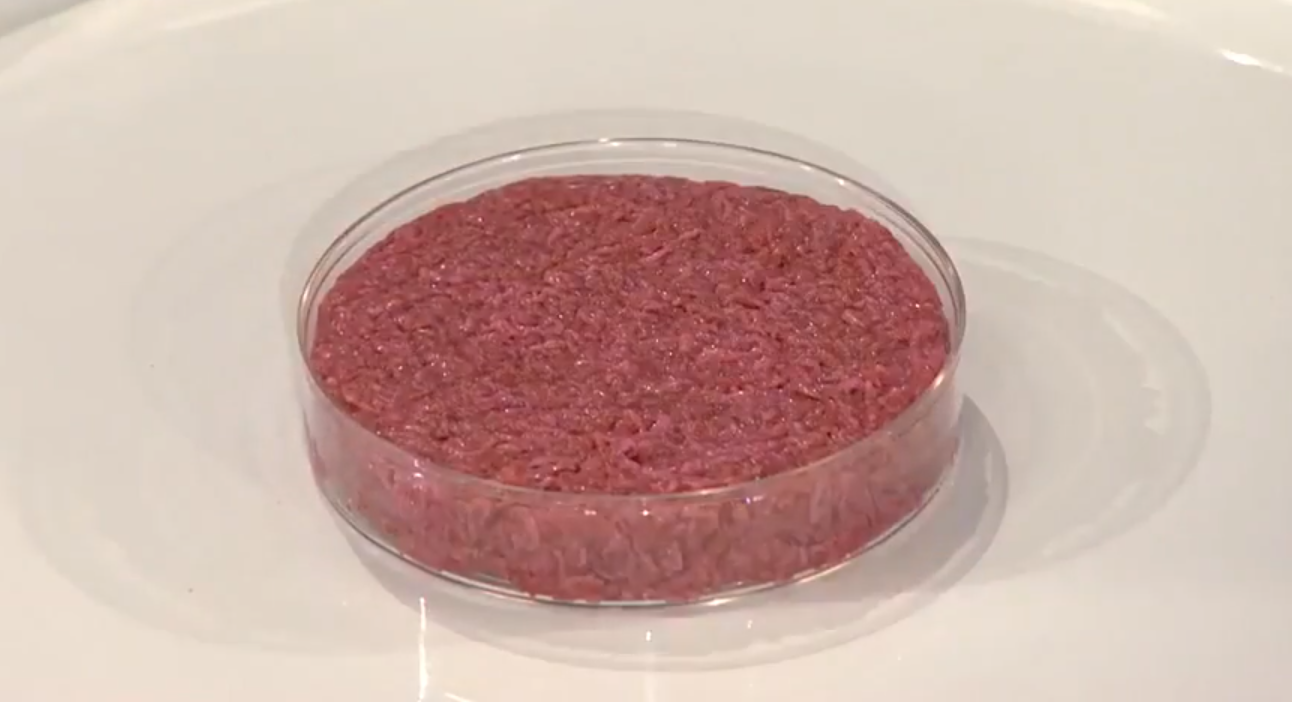A new ruling by Israel’s chief rabbi allows religious Jews to eat lab-grown meat with cheese. This may be the basis for similar rulings concerning other lab-grown products cultured from the cells of pigs and other non-kosher animals. But not everyone agrees and this may change as the technology develops.
Ashkenazi Chief Rabbi David Lau released a ruling on Wednesday stating that lab-grown meat is kosher and that it can be served with dairy products. His ruling came in response to an inquiry by Aleph Farms, a cultivated meat company located in Rehovot.
“As long as cultured meat is defined and marketed as a vegetable product [that is] similar to meat and there is supervision over the rest of its ingredients, then the halacha [Jewish law] would categorize it as kosher pareve; as a vegetable product.”
Halacha forbids the consumption of dairy products with meat, including poultry. This is derived from the Torah stating three times, “You shall not boil a kid in its mother’s milk” (Exodus 23:19; Exodus 34:26; Deuteronomy 14:21).
He added that it shouldn’t be marketed with dairy products so that the Jewish public would “not get used to eating dairy and meat products together” and “may cause [halachic Jews] to sin.”
The rabbi explained that the non-meat status of the lab-grown meat was conditional.
“In particular if its shape will be similar to meat in taste and smell, [then Jews should] treat this cultured meat as stricter and define it as kosher, but not pareve, for the purpose of mixing it, cooking it and eating it with dairy products.”
Lab-grown meat has both practical as well as religious advantages. A recent study by CE Delft found that cultivated beef has the potential to reduce greenhouse gas emissions by 92%, land use by 95%, and water use by 78% compared to intensive livestock farming. Advocates also cite animal welfare, food security, and human health as benefits.
As emphasized in Rabbi Lau’s ruling, lab-grown meats may introduce culinary possibilities that were previously forbidden to Jews. In addition to cheeseburgers, cells taken from pigs may also be deemed kosher for Jewish consumption. Rabbi Yuval Cherlow, a recognized authoritative figure on Halacha (Torah law), suggested this may be the case.
“When the cell of a pig is used and its genetic material is utilized in the production of food, the cell, in fact, loses its original identity and therefore cannot be defined as forbidden for consumption,” Rabbi Cherlow said at a conference titled, “Science and Halacha” in 2018. “It wouldn’t even be meat, so you can consume it with dairy.”
Rabbi Moshe Avraham Halperin of the Machon Mada’i Technology Al Pi Halacha (the Institute for Science and Technology According to Jewish Law) agreed.
“The main question is whether to relate to the cells used as part of the animal from which they were taken,” Rabbi Halperin said to Israel365 News. “Individual cells are not normally considered a living organism for Halachic purposes,” he continued. “The end product is also so different from the donor that it could be considered a new being. But here, we have cells that increase until they represent a significant mass.”
“The Torah forbids us from eating these forbidden foods, but the main aspect of eating is taste,” he explained. “Even though it looks like meat and tastes somewhat like meat when it is first made, it does not taste exactly like meat taken from the animal.”
Not every rabbinic authority agrees. In a controversial ruling last year, the Orthodox Union’s kosher division did not certify Impossible Pork, a vegan pork substitute produced by Impossible Foods. Despite admitting that the plant-based product was technically kosher, the OU cited “sensitivities to the consumer” as reasons for the refusal.
For the time being, bacon cheeseburgers are still possibilities for a kosher menu but as the technology and marketplace develop, the relevant rabbinic rulings may change.
Some rabbis suggest that the basis for high-tech meat alternatives is described in the Talmud. In tractate Sanhedrin 59b, the rabbis discuss “meat that descended from heaven”.
They tell of Rabbi Shimeon ben Chalafta, who was walking on the road when lions came and roared at him. He quoted, “The young lions roar for prey and beg their food from God” (Psalms 104:21), and two lumps of meat fell from heaven. The lions ate one and left the other. Rabbi ben Chalafta brought a piece of this meat to the study hall and asked: Is this fit to eat or not? The scholar answered: “Nothing unfit descends from heaven.”
The same tractate, on page 65b, deals with a similar issue, reading: “Rabbi Chanina and Rabbi Oshaia would spend every Sabbath eve studying the Sefer Yetzirah (Book of Creation, one of the early books of Kabbalah) by means of which they created a calf and ate it.”
Rabbi Yeshayah Halevi Horowitz, a 16th-century rabbinic authority, ruled that meat created in an unnatural manner, such as by Kabbalistic methods, is not considered a real animal and does not need ritual slaughtering. The Malbim, a 19th-century Torah scholar, commented that meat created this way is not considered meat and can be eaten with milk. He suggested that this is the type of meat Abraham offered the angels (Genesis 17:7-8), and was, therefore, able to serve them milk at the same time.These sources could be understood as the basis for ruling on meat alternatives being ‘created’ in a laboratory.




